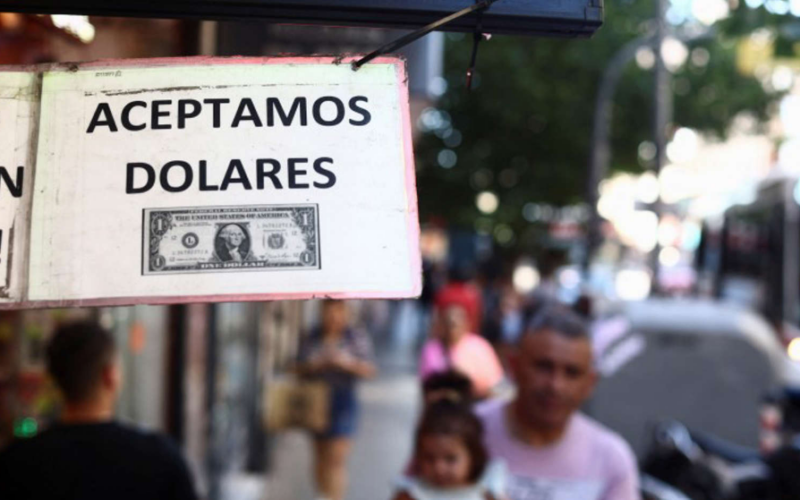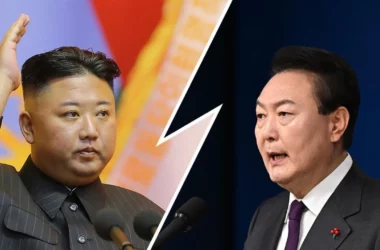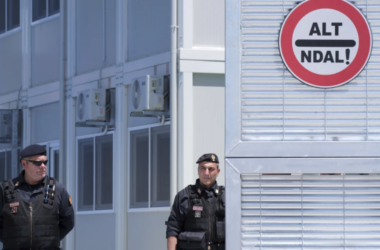In a bold move to address Argentina’s severe economic crisis, the newly inaugurated government, led by President Javier Milei, has implemented a significant devaluation of the country’s currency, the peso, by more than 50%. This drastic measure is part of a comprehensive package of large-scale spending cuts aimed at navigating Argentina through its worst economic downturn in decades.
The economic reforms introduced by President Milei’s administration include substantial spending cuts, the reduction of energy subsidies, and the cancellation of tenders for public works. Economy Minister Luis Caputo, in a televised address after the local markets closed on Tuesday, announced a deliberate weakening of the official exchange rate to 800 pesos per dollar, a stark contrast to the previous rate of 366.5 pesos per dollar. Caputo outlined that the central bank would target a monthly devaluation of 2%.
Acknowledging the short-term pain associated with these measures, Minister Caputo emphasized their necessity to address Argentina’s fiscal deficit and combat soaring triple-digit inflation. He stressed the urgency of avoiding a catastrophic economic scenario, stating, “There is no more money.” Caputo argued that the country’s fiscal deficit, estimated at 5.5% of GDP, needed immediate attention, characterizing Argentina’s historical pattern of fiscal deficits as an “addiction” that must be addressed at its roots.
The overarching goal of these measures is to stabilize the Argentine economy and set the foundation for sustainable and private sector-led growth. Minister Caputo highlighted the imperative to break the cycle of fiscal deficits that Argentina has experienced over the last century, asserting that solving this problem at its roots is essential for the nation’s economic recovery.
The International Monetary Fund (IMF) welcomed Argentina’s decisive measures, considering them an essential step toward restoring stability and rebuilding the country’s economic potential. Managing Director Kristalina Georgieva applauded the government’s actions, describing them as bold and crucial for addressing recent policy setbacks. Argentina, facing significant economic challenges, including inflation nearing 150%, depleted central bank reserves, and widespread poverty, holds a $44 billion loan with the IMF.
Before the announcement of the economic plan, Argentina’s foreign exchange and grains markets experienced lockdowns as traders awaited the government’s decision. Banks had already anticipated a sharp devaluation, adjusting their foreign exchange rates in anticipation. The central bank is expected to unveil new monetary measures to complement the broader economic reforms on Wednesday.
Argentina’s new government, under President Javier Milei, has embarked on a challenging path to revive the country’s economy by implementing drastic measures, including a significant peso devaluation. While acknowledging the immediate hardships, officials believe that addressing the root causes, particularly the fiscal deficit, is crucial for long-term economic stability. The international community, particularly the IMF, has expressed support for Argentina’s bold steps, recognizing them as a vital stride toward restoring the nation’s economic resilience.








